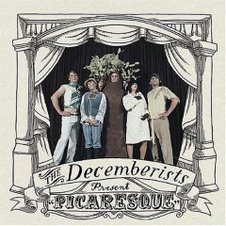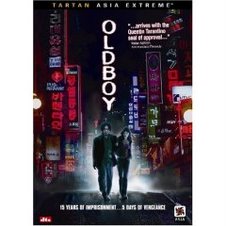I don't know whether to laugh or cry, so I will do them simultaneously.
I happened to be reading a comment by Dan Vogel over at Sunstone Blog, when I found a link to this March 2004 Sunstone article (pdf file) proposing a possible Malaysian-Thai setting for the Book of Mormon. I think the article is fascinating, if only as an experiment in how much "evidence" one can find for just about any theory about the Book of Mormon. (It must be particularly discouraging to apologists that just as much evidence supporting the Book of Mormon can be found in Southeast Asia as in the ancient Americas.)
The author, Dr. Ralph Olsen, seems quite sincere about his theory and has even assembled a 301-page manuscript (pdf file) outlining his arguments. I have only skimmed through the 300 pages, but I believe his point is that if the Book of Mormon Hill Cumorah isn't the same as the New York State Hill Cumorah, as currently argued by FARMS, then why couldn't the original have been in Asia instead of Central America? (I can think of plenty reasons, but still.)
I believe that this kind of bizarre theorizing is the logical result of the Limited Geography school of thought. FARMS and the Limited Geography Theory have decided to throw out all of Joseph Smith's and his contemporaries' statements about the United States and the Western Hemisphere being the land of the Nephites and Lamanites because it doesn't fit the archeological evidence. Well, if Joseph didn't know where the Book of Mormon happened, how come it couldn't have been in Asia? Or on the moon?
At some point, it seems to me like we are arguing over the true location of Rivendale and whether Frodo really could have reached it from Bag End in such a short amount of time. Fascinating for sure, but more than a little absurd.
Subscribe to:
Post Comments (Atom)




15 comments:
I don't know if it will add to your amusement or despair to know that this sort of thing occurs regularly in biblical studies.
Well, on second thought, the continent is not usually in question.
Something new enough to get published, with just enough evidence to make it thru peer review...that's the ticket!
Very interesting, Mogget.
Here's your chance for eternal biblical studies fame: I've heard a lot of talk in Sunday School about the lost ten tribes of Israel being located inside the North Pole. Let's see THAT make it through peer review.
So what exactly is the laughing/crying is about Ned? Are you assuming that because we have not yet pinned down exactly where the events in the BoM took place then they must be fiction?
Even though we pretty much know where the events in the Old and New Testaments took place does that assure you that the revelations and miracles recorded there actually happened? Does knowing where Jerusalem is assure you that Jesus Christ was actually resurrected?
Knowing (or at least having some confidence in) the location of the Bible events does none of that important stuff for me. The only thing that assures me that Jesus Christ atoned for the sins of the world, died on a cross, and rose again the third day is direct revelation from God. All the locational stuff is only mildly interesting background noise. Either God told me the truth about Jesus Christ or he didn't.
The same is true for the veracity and historicity of the Book of Mormon -- regardless of where it happened. So why the laughing and crying? It seems to me that if one is looking for spiritual truths, one must use spiritual methods...
I suppose if you have "inquired of the Lord" and have given up on getting answers, saying to yourself: "the Lord maketh no such thing known unto us" (1 Ne. 15: 9) then there might indeed be reason to cry though. I hope (and assume) you haven't given up on personal revelation though -- it is a different kind of work than archeology but a vastly more important and valuable one for each of us personally in my opinion.
Ned,
I'd probably have eternal biblical studies glory if I could get the existence of the Ten Tribes past peer review, let alone show happened to the deported residents of the Northern Kingdom!
RT,
Yup. That's why I always vote myself off any island in which the topic arises. We've really nothing serious to investigate until some "written stuff" turns up.
The larger LDS community is still very much in a "First Quest" mindset.
Ned, you might enjoy reading my post at DMI from April 2004 (wow, that long?) where I discussed the article in much the same way. Great minds think alike.
Geoff and others who rely solely on personal revelation seem to overlook the point of the Book of Mormon. If all the evidence necessary was personal revelation, there was no need for the BoM. People could receive personal revelation without any scriptures, for that matter, but certainly the Bible itself could have provided all the background knowledge necessary to lead to revelation. For example, Joseph Smith himself didn't need anything more than the Bible.
Originally, the BoM was intended to "convince" people that Jesus is the Christ. "Convince" means "to bring by the use of argument or evidence to firm belief." As we are currently lacking evidence of historicity, we rely on argument for the convincing--but that argument is weakened when we both (i) lack the evidence and (ii) start asserting that evidence is irrelevant anyway.
I'm curious how the lack of historicity can help accomplish the objective of "convincing" anyone.
Hm, well, folks like Rudolf Bultmann and his students considered a lack of evidence in support of the NT to be a plus. Nothing of value can be known of Jesus, they said. If there's no evidence, one's faith is purer and more stable. Evidence changes; faith ought not.
I think most folks now consider their approach a reaction to the excesses of their predecessors, who probably had an undue amount of confidence in their ability to recover historicity from the Bible.
But I dunno. It's a long ways from where I normally work, so I really don't know if it's the same thing or not.
Anonymous (btw - is it so hard to make an name up?): If all the evidence necessary was personal revelation, there was no need for the BoM.
You seem to miss the point about personal revelation. The easiest kind of personal revelation to receive is binary -- yes or no; red light or green light; true or false. Only after one gets adept at binary revelation do they move onto more detailed revelation.
It is true that one of the stated purposes of the Book of Mormon is to convince people that Jesus is the Christ. But Moroni clearly explains how it does that: through binary revelation (at least initially). In other words, we read it, we ponder on the things taught, and we ask God. Then God answers us and we know one way or the other.
The very same process is true with the Bible. Nobody knows that Jesus is the Christ solely from the evidence that there was a historic person named Jesus of Nazareth that was crucified by the Romans. The only way to know Jesus is the Christ is to have God tell you himself via revelation of one kind or another.
What do you suppose will happen if and when strong evidence for the location of Zarahemla turns up? That everyone in the world will suddenly have a unshakeable faith that Jesus is the Christ and that Joseph Smith is a true prophet? The idea is ludicrous. That kind of faith comes exclusively through direct personal revelation and that direct personal revelation is available right now with or without the exact archeological site of ancient Zarahemla.
I should have known that Dave and RoastedTomatoes beat me to the punch (by several years, in Dave's case). I highly recommend both Dave's and RT's posts.
Geoff-- I hope you haven't misunderstood me. I am laughing and crying simply because of the absurdity of a Malaysian setting for the Book of Mormon. This man has spent several years compiling evidence and has written a 300-page paper on something most of us would dismiss out of hand.
On the other hand, it is the absurdity of FARMS and other apologists' arguments that have made this possible. I think this transcends one's personal belief in the historicity of the Book of Mormon.
I agree that the lack of archeological evidence to back up many of the claims of the Old Testament is similarly damning. The only difference is that we are pretty sure an ethnic group called the Jews existed, though they probably weren't enslaved by the Egyptians and probably didn't walk through the Red Sea. In contrast, we haven't been able to even confirm a group of people called the Nephites.
Love ya Ned. Happy New Year. Good post, but I think you’re being overly harsh.
For background, I remain very open on the BofM historicity vs. allegory debate but, that aside, even a casual read of the book screams local geography, unless one could walk across North or South America in a few days time. And why would ancient people make frequent cross continental journeys anyway? It took four generations for European descendants to settle across North America, and that occurred much faster than anyone expected at the time.
JS getting some interpretations wrong, like not understanding there were likely multiple human entries into the Americas, and that the BofM peoples could only describe/represent a small part of what was going on, and it is unlikely most modern American Indians are descended from any of Lehi’s family, doesn’t bother me in the least. In fact, such incorrect interpretations kind of distances him from the book, as you’d expect if he didn’t write it and lacked the intimate conscience and unconscious grasp an author would have of his work and the background premises thereof. At one point, the BofM even says the label Lamanite is applied to any non-Nephite, even those from other stock than Laman and Lemuel, clearly alluding to multiple past entries and indigenous people already in place. Related to that, the bigotry and anti-Lamanite hyperbole (They are dirty, naked, eat raw meat, drink blood, etc) makes the BofM more realistic to me (the authors are real people w/ baggage) and argues strongly that Laman and Lemuel “went native” w/ indigenous peoples while the Nephites remained separate and maintained more traditions of the old country. The first Nephi clearly has an axe to grind and we get his interpretation rather than an unbiased account, such as G-d made their skin dark (rather than they went native and fathered children w/ the darker locals), but one could say the same thing about most scripture being someone’s interpretation (Such as the story of Onan: the poor guy probably died happy and of natural causes, his wife screamed, people came in the tent and said “Oh, look, the Lord struck him down for……………….” Only Onan knows what really happened.
JS got the big stuff right. The essence of his preaching was that the common Christian religious model (that remains to this day) that Jesus the Messiah shows up, changes everything, the past is dumped and a new tradition started is bunk. JS preached that faith in the Messiah, repentance and forgiveness by grace were preached by true prophets from the beginning w/ the atonement being in effect for all mankind from the beginning. Once you dump the Nibleyite crap and understand that time is part of G-d’s creation and He is independent of it, it all makes sense. In effect, the whole Christian message preached from the beginning is the plain and precious truth lost anciently. And from what source did JS first get these ideas? Does it really matter if the BofM is history or allegory?
Geoff continues to miss the point of historicity. No one asserts that everyone would accept the gospel if Zaramehmla showed up, and it's a red herring to make such an assertion.
Moroni does refer to praying about the things we received, to know whether they are true. Geoff assumes Moroni means the message of the gospel, but in the verses leading up to the promise Moroni is refering to the historical events. In fact, those facts are what he specifically refers to. If you read what he wrote, he is talking about historicity; instead, Geoff's all too common approach substitutes a spiritual testimony of Christ and Joseph Smith for Moroni's promise.
Moroni was relying on the historicity of the Book of Mormon as a witness of Christ. He later affirms that a person can know that Christ is, by the power of the Holy Ghost; but there is no suggestion that historicity is irrelevant. The whole point of the three witnesses was to testify of historicity, as well.
This is why the lack of historicity is such a serious issue.
Mahoun,
Interested thoughts, but I still don't buy that historicity is required, even through I lean towards historicity, probably because everyone who passionately argues revealed allegory or fraud conveniently ignores the witnesses you mention. But, have you considered that perhaps the gold plates and related translation devices were tangible focal objects that the angle Moroni temporarily gives to Smith to allow his earthly mind to accomplish the task and keep him focused on dictating the "translation" (more likely allegorical revelations in this scenario) and Smith introduces the book to the world according to his understanding w/ the corroboration of the witnesses? Bear in mind that many LDS view the papyrus Smith "translated" in the same light, a tangible focal object his earthly mind needed to receive revelations, which in his limited understanding was a translation. It's interesting too that both works (BofM and PofGP) hammer home the same point under different settings: the gospel of the Messiah was preached from the beginning of mankind.
RT,
I agree that there are many ways of looking at these things. My point was more to the effect that the BofM doesn't preclude other groups, even kind of hints at them, and Smith didn't pick up on that detail, probably because it's not his own work just like he said. Today we know humans have been in the Americas for tens of thousands of years and it's very unlikely Lehi's group was alone, but, we'll never know for sure because we weren't there (assuming Lehi was real and the setting was in the Americas).
See Ned, Malaysia isn’t out of the question.
The most serious implications of this debate are not historical. This debate damages claims of inspiration and divine authority.
Those who claimed to possess authority were misled by inspiration. Presidents and apostles of the LDS Church have fundamentally misinterpreted the Book of Mormon.
Therefore there is evidence that inspiration is misleading even those who are claim to possess the most privileged relationship with god.
Why should I follow these people and dump on my gay and lesbian neighbors if the prophets cannot even get the descriptive stuff right?
Well Hellmut, by their fruits you will know them. You shouldn't follow obvious false prophets. Even Jesus had false prophets in his ranks. Our day is no different. Some LDS leaders are prophets and some are false prophets. A certain liberace fan who has made a shameful career obsessing about boys self pleasure and women's fashion, all likely because he couldn't come to grips with his own sexuality, comes to mind.
That's a good point. Steve. I am not sure, however, that our leaders agree with the notion that members ought to evaluate them one by one.
New evidene about Native Americans and Samoans is an opportunity to assess whether those who claimed to be prophets were actually right. It turns out that every president of the LDS Church from Joseph Smith to Ezra Benson was wrong.
Hence claims of Mormon leaders of privileged access to God is suspect. This affects the very foundations of Mormon orthodoxy.
Don't get me wrong. There can be a lot of good about the Mormon experience even if there is no prophecy.
Claims to unqualified obedience trouble me. They are based on knowledge claims, some of which have been proven false. That matters.
Post a Comment